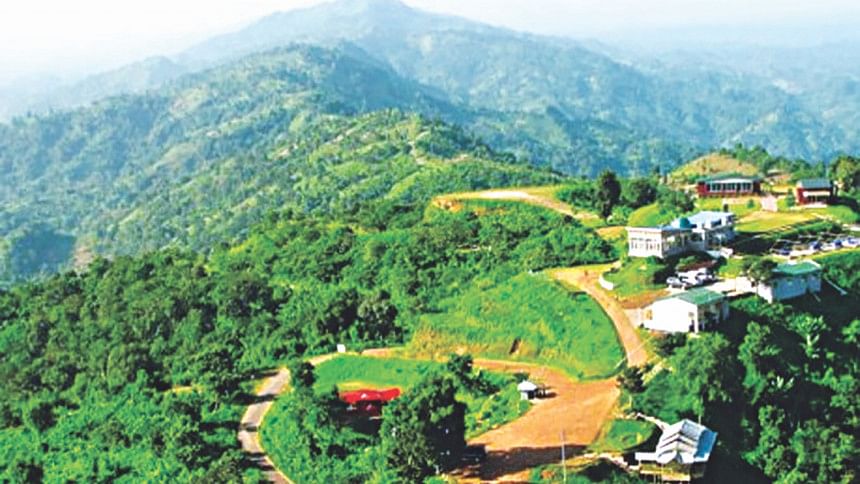On the settlement of land disputes in the CHT

Land crisis is arguably the main problem in the Chittagong Hill Tracts (CHTs) centering which many other problems have arisen over the years. From time immemorial, the CHT inhabitants have been complying with their traditional collective ownership principle coupled with customary rules and regulations for land management. They would own their land orally which was socially accredited and transfer it by verbal commitment, informing the Raja and paying annual tax to him.
The British applied terra nullius in the CHT and declared the lands of the CHT exclusively vested to the government rejecting the ownership of three local Rajas. Subsequently, 1,356 square miles out of 5,146 square miles were declared as ‘reserved forest’ which comprise almost 25 percent of the total territory of the CHT. The Kaptai barrage submerged almost 54,000 acres cultivable land and made 1,00,000 people homeless without compensation and rehabilitation.
The Bangladesh government deployed military force in the CHT in response to insurgency by the Shanti Bahini, a military wing of Parbatya Chattagram Jana Samhati Samiti (PCJSS). About 4 lacs Bangalee inhabitants had been settled in the CHT during 1979-1984. In consequence, many tribal people allegedly lost their ancestral property and were displaced. Among them, 90,000 families were internally displaced and 10,000 families had been repatriated from India following the Peace Accord (The Daily Star, December 2, 2014).
In 1997, Shanti Bahini surrendered and PCJSS entered into historic Peace Accord with the government of Bangladesh. Following the Accord, the Hill District Local Government Council Act 1989 was amended in 1998 which provided for little autonomy of the people. The Peace Accord introduced Regional Council, an apex and unique system of governance to supervise and co-ordinate the Hill District Councils. But no election was held in the councils. Moreover, two writ petitions were filed alleging the violation of state’s unitary formation by the Regional Council Act. The High Court Division declared some provisions of this Act and the Hill District Council Act unconstitutional which added a new dimension to their agonies. Presently, an appeal on the matter is pending in the Appellate Division of the Supreme Court of Bangladesh.
The Chittagong Hill Tracts Land Dispute Resolution Commission Act 2001 set up a Land Commission, headed by a retired judge of the Supreme Court as its chairman to settle land disputes and to determine the ownership of the land of those who were dispossessed. Ancient customary laws were not recognised and the claimants, without having title documents, are not getting any remedy despite being in the possession for a long time of the property inherited from their forefathers. Though a number of complaints (approximately 22,000) have been filed, but no decision regarding those complaints has not been made yet. Despite amending the Act in 2016, the government could not formulate the necessary Rules accordingly.
Traditionally, many tribal inhabitants did not feel the need of keeping title documents as they used to transfer land orally. So, lands belonging to the owners who possessed no documents, vested absolutely to the State as khas land. The government can now take control of such lands for any purpose simply evicting the inhabitants at any time.
The government claims to have fulfilled 48 clauses out of 72 of the Peace Accord (Prothom Alo, December 2, 2019); however, the major issue of land has remained unsettled. They got better schooling, better treatment, developed transportation even in the remote hilly areas, according to the government; but they are yet to get back their ancient land which seems to be a violation of their guaranteed right.
In order to settle the land disputes, the Land Commission should start its function within no time with the Rules formulated. The government may consider allocating the khas lands to the evicted and displaced tribal people. A survey and record of rights accordingly only for the CHT should be there in place as soon as the settlement of disputes is solved.
The writer is student of law, University of Chittagong.

 For all latest news, follow The Daily Star's Google News channel.
For all latest news, follow The Daily Star's Google News channel. 



Comments